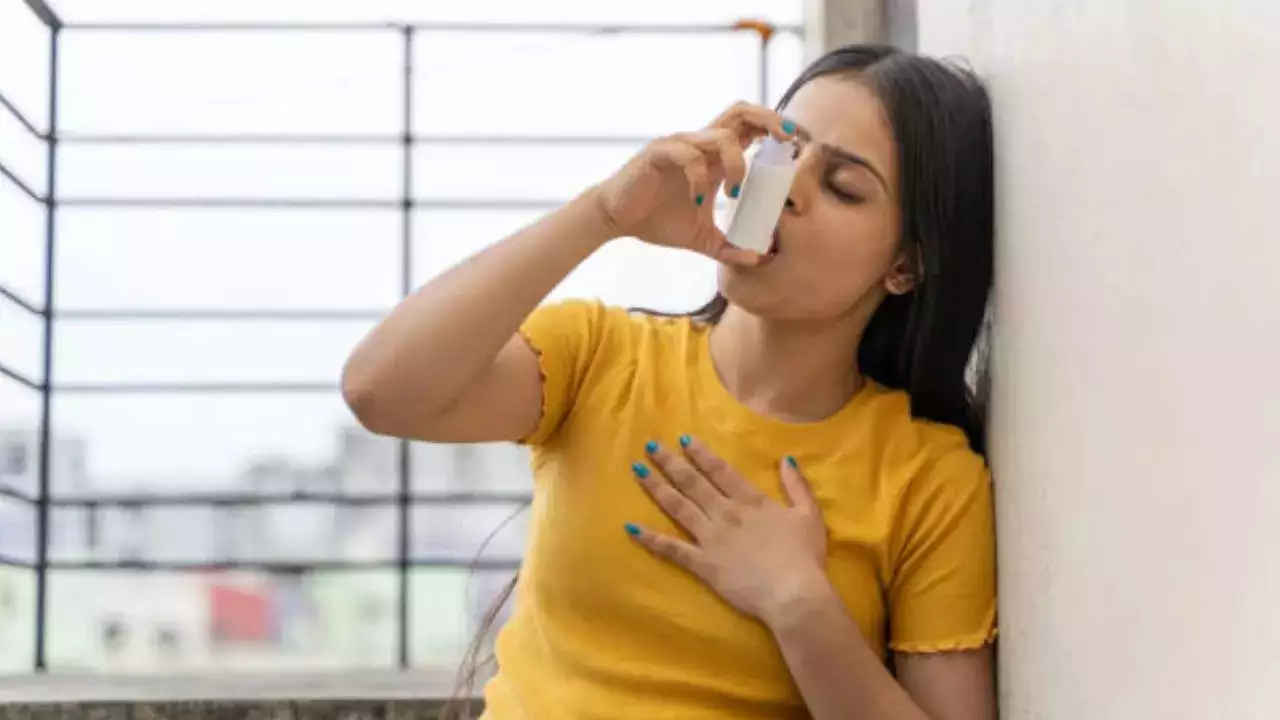
Living With COPD In Delhi's Toxic Air? Here’s How To Manage Your Symptoms (Image Credits: iStock)
Chronic Obstructive Pulmonary Disease (COPD) is a progressive lung condition that makes breathing difficult due to long-term exposure to harmful pollutants, dust, or smoking. For those living in polluted cities, coping with COPD can be especially challenging. But worry no more! We got in touch with Dr Shiba Kalyan Biswal - Clinical Director Pulmonology, Respiratory and Sleep Medicine, Marengo Asia Hospitals Gurugram who shares lifestyle changes, along with treatment options that can help patients manage their symptoms and lead a better quality of life.
COPD and Its Challenges in Polluted Environments
COPD is a group of lung conditions, including emphysema and chronic bronchitis. It causes damage to lung tissue, airways, and leads to inflammation. Major risk factors for COPD include smoking, secondhand smoke, and exposure to environmental pollutants such as traffic fumes, industrial emissions, and construction dust.
In polluted urban areas, the effects of COPD can worsen significantly. Poor air quality aggravates symptoms such as breathlessness, coughing, and wheezing, making daily activities even more difficult. However, specific strategies can help mitigate these effects.
Key Strategies to Manage COPD in Polluted Cities
1. Limit Exposure to Polluted Air
Avoiding polluted air is critical for managing COPD symptoms. Patients should:
- Stay indoors during periods of poor air quality, as indicated by local air quality indices available on apps or websites.
- Use air purifiers at home, especially in bedrooms and living areas, to reduce indoor pollution.
2. Use Protective Masks
When outdoor activities cannot be avoided, wearing high-quality masks, such as N95 respirators, can help filter out harmful particles and reduce the amount of pollution reaching the lungs.
3. Avoid Physical Overexertion Outdoors
Heavy physical activities, such as running or brisk walking in polluted air, can worsen COPD symptoms. Opt for light walks or exercises indoors where air quality is better controlled. If outdoor activities are necessary, plan them for early mornings or late evenings when pollution levels tend to be lower.
4. Follow Medication Plans
Medications, including inhalers, bronchodilators, and corticosteroids, play a vital role in managing COPD. Patients must:
- Use prescribed medications regularly and as directed.
- Consult their doctor before making any changes to their medication routine.
5. Maintain Hydration and a Healthy Diet
Staying hydrated keeps the airways moist, reducing the risk of infections. A balanced diet rich in fruits, vegetables, lean proteins, and whole grains provides essential nutrients for lung health. Foods high in antioxidants, such as berries and green leafy vegetables, can help reduce inflammation in the lungs.
6. Exercise in Controlled Environments
Exercise is essential for maintaining lung function and strength. Activities like yoga, swimming in indoor pools, or mild stretching improve breathing without exposing patients to outdoor pollutants. Pulmonary rehabilitation programs, which combine supervised exercise and education, can be particularly beneficial.
7. Quit Smoking
Smoking is a leading cause of COPD progression. Quitting smoking and avoiding secondhand smoke are the most effective steps to prevent further lung damage. Support groups and cessation programs can help individuals on their journey to quit.
8. Regular Health Check-Ups
Frequent visits to a healthcare provider allow for monitoring COPD progression and detecting exacerbations early. Regular lung function tests and prompt treatment of worsening symptoms can prevent hospitalizations and improve long-term outcomes.
Get Latest News Live on Times Now along with Breaking News and Top Headlines from Health and around the world.


